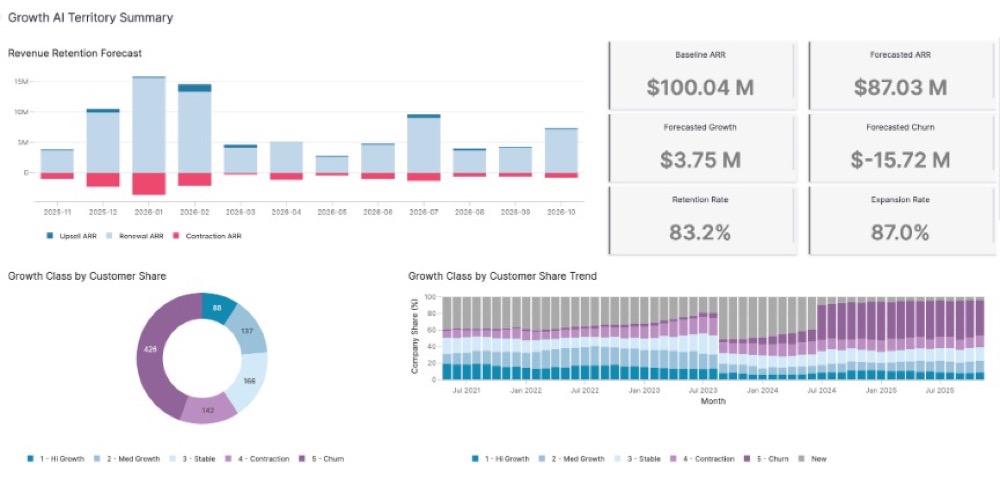Business owners frequently seek ways to maximize tax deductions while providing benefits to key employees. Life insurance arrangements can play a part of this strategy. Life-insurance related strategies can be particularly useful if they come with significant tax advantages and help the parties meet their financial goals.
However, the line between legitimate business expenses and personal benefits can blur when arrangements primarily serve the owner’s estate planning objectives rather than genuine business needs. The IRS often challenges life-insurance related transactions when they involve substantial tax benefits.
What happens when a business owner’s life insurance arrangement looks more like personal estate planning than employee compensation? How do courts determine whether premium payments qualify as deductible business expenses or constitute non-deductible personal benefits?
The court addresses this in McGowan v. United States, 2025 WL 3045732 (6th Cir. 2025), in relation to a split-dollar life insurance policy where life insurance premiums were deducted by the business through a split-dollar arrangement that was also in line with the owner’s personal estate planning goals.
Facts & Procedural History
The taxpayer operated a successful dental practice in Ohio that was structured as a C corporation. As the company’s sole shareholder, director, president, treasurer, and secretary, the taxpayer controlled all aspects of the business operation. The company typically paid him a weekly salary plus year-end bonuses equal to the corporation’s taxable income.
The taxpayer had previously maintained a personal life insurance policy. However, his health insurance advisor introduced him to what was marketed as a more tax-efficient alternative—a split-dollar life insurance arrangement. This involved creating two subtrusts through a Benefits Trust Agreement. The Death Benefit Trust purchased and owned a $2,057,613 life insurance policy covering the taxpayer’s life. The company contributed $37,222 annually to this trust to pay the policy’s base premium. A second trust, the Restricted Property Trust, received up to $12,778 annually from the company, which it transferred to the Death Benefit Trust as paid-up additions to increase the policy’s cash value.
The arrangement operated on five-year terms with three possible outcomes. If the taxpayer died during the term, his wife would receive the death benefit. If the company declined to renew after five years, the taxpayer would receive the policy directly. If the company failed to make required premium payments, the policy would be surrendered for its cash value, which would be donated to the taxpayer’s designated charity.
From 2011 through 2015, the company deducted $50,000 annually in contributions to both trusts. The taxpayer reported only the $12,778 Restricted Property Trust contributions as taxable income. He did not report the policy’s death benefit or accumulated cash value as income.
When the taxpayer attempted to extend the arrangement in 2016, he missed the deadline. As a result, he received direct ownership of the policy and reported $115,227 in taxable income representing the policy’s cash value minus previously reported amounts.
The IRS subsequently conducted an IRS audit of both the taxpayer and the company. The IRS determined that the taxpayer should have recognized the policy’s economic benefits as taxable income each year, and that the company should not have deducted its premium payments. The IRS treated this as ordinary income for the taxpayer. For tax years 2014 and 2015, the IRS assessed additional tax penalties for the taxpayer and the company.
After paying the assessed amounts, the taxpayer and the company filed suit in federal district court seeking refunds. The district court granted summary judgment for the IRS, prompting this appeal to the Sixth Circuit.
Understanding Split-Dollar Life Insurance Arrangements
Split-dollar life insurance arrangements involve an employer paying some or all premiums on an employee’s life insurance policy in exchange for sharing the policy’s benefits. The name reflects how the dollars spent on premiums and received as benefits are theoretically “split” between the employer and employee.
These arrangements have become common in executive compensation packages, particularly for closely-held businesses. The employer might pay premiums while the employee designates beneficiaries and retains some rights to the policy’s cash value. When structured properly, they can provide valuable benefits to key employees while serving legitimate business purposes.
Split-dollar life insurance arrangements are valid and, if properly structured, they can provide tax benefits. The question is whether the arrangements are structured correctly and serve genuine business purposes.
The popularity of split-dollar arrangements led the Treasury Department to issue regulations in 2003 addressing their tax treatment. Section 1.61-22 of the regulations, known as the “split-dollar regulation,” establishes three categories of arrangements: general, compensatory, and shareholder. This case involved a compensatory arrangement, which applies when the arrangement is entered into in connection with the performance of services.
The regulation’s purpose is to prevent taxpayers from avoiding reporting the true economic benefits of these arrangements. When the regulation applies, it requires employees to include economic benefits in income. Each category triggers similar tax consequences but differs in qualifying criteria.
The Split-Dollar Regulation’s Requirements
The split-dollar regulation applies to compensatory arrangements meeting specific requirements. The arrangement must be entered into in connection with services performed and cannot be part of a group-term life insurance plan. The employer must pay all or part of the premiums, either directly or indirectly.
Additionally, one of two conditions must be met. Either the employee or service provider must designate the death benefit beneficiary (or the beneficiary must be someone the employee would reasonably be expected to designate), or the employee must have some interest in the policy’s cash value.
When these conditions are satisfied, the regulation requires the employee to include the arrangement’s economic benefits in gross income. The employer’s ability to deduct premium payments is separately analyzed under general business expense rules in Section 162(a). When arrangements primarily serve personal rather than business purposes, the payments are treated as non-deductible compensation or distributions.
How the Regulation Calculates Economic Benefits
The split-dollar regulation requires employees to recognize the “full value of all economic benefits” derived from the arrangement. This calculation includes three components: the cost of current life insurance protection, the amount of policy cash value to which the employee has “current access,” and the value of any other economic benefits.
The concept of “current access” is the central part of this analysis. The regulation defines this term broadly to include not just immediate access but also “future rights” to policy cash value.
An employee has current access to cash value if they have a current or future right to it, and the cash value is directly or indirectly accessible to the employee, inaccessible to the employer, or inaccessible to the employer’s general creditors. This broad definition prevents taxpayers from arguing that restrictions or contingencies eliminate the economic benefit.
Why Trust Structures Don’t Avoid Split-Dollar Treatment
The taxpayer also argued that the company was not an “owner” of the policy because the Death Benefit Trust formally owned it with an independent trustee. The court rejected this argument for several reasons.
The split-dollar regulation treats an employer as the policy owner if the actual owner is a welfare benefit fund under Section 419(e)(1). The Death Benefit Trust qualified as such a fund because it was part of the company’s plan to provide financial benefits to employees. The formal trust structure provided no meaningful protection when the company retained effective control, including the power to remove the trustee at any time.
Why the Taxpayer’s Arrangement Qualified for Split-Dollar Treatment
The taxpayer challenged whether his arrangement satisfied the conditions that trigger split-dollar regulation. He argued that his wife was not a beneficiary he designated, and that he lacked sufficient interest in the policy’s cash value due to the risk of charitable forfeiture.
The court found these arguments meritless. The taxpayer clearly designated his wife as the death benefit beneficiary, satisfying the first condition. The potential charitable donation affected only the cash value, not the death benefit, and the taxpayer had designated the charitable beneficiary as well.
The court noted that the taxpayer had multiple current and future rights to the policy’s cash value. He could receive the policy if the company declined to renew the arrangement. He could designate both the death benefit beneficiary and the potential charitable recipient.
The court found that the taxpayer’s power to designate the charitable beneficiary itself constituted a valuable right. The court cited the principle that “the power to dispose of income is the equivalent of ownership of it.”
When Do Premium Payments Qualify as Business Expenses?
Beyond the split-dollar regulation’s application, the taxpayer challenged the denial of the company’s business expense deductions. He argued that the premium payments qualified as ordinary and necessary business expenses under Section 162(a).
Section 162 allows deductions for expenses that are paid or incurred during the tax year, relate to carrying on a trade or business, constitute expenses rather than capital expenditures, and are both necessary and ordinary. “Ordinary” expenses must be common or frequent in the taxpayer’s business type. “Necessary” expenses must be appropriate and helpful for business development, though this imposes only a minimal requirement.
This analysis requires examining the primary purpose and effect of the expenditure. When payments primarily advance personal goals while generating corporate deductions, the IRS is likely to assert that they are non-deductible personal expenses.
The Supreme Court has emphasized that deductions are matters of legislative grace. This means taxpayers must clearly demonstrate their right to claimed deductions.
Why Personal Benefits Disqualify Business Deductions
In this case, the court concluded that the premium payments were not business expenses because they advanced the taxpayer’s personal estate planning goals rather than legitimate business purposes. The arrangement enabled the taxpayer to provide his wife with over $2 million in life insurance proceeds while generating tax deductions for his company.
The court noted that tax avoidance alone cannot justify business expense treatment. The arrangement’s marketing materials confirmed its personal nature, with only one alleged benefit relating to the company: tax-deductible contributions. All other benefits concerned the taxpayer personally, including the life insurance coverage and estate planning advantages.
The taxpayer offered two business justifications that the court found unpersuasive. First, he claimed the arrangement ensured business continuity. However, the policy’s death benefit was based on the taxpayer’s personal insurability and prior coverage rather than the actual cost of replacing him. His accountant estimated that finding a successor dentist would cost $150,000 to $200,000 – less than one-tenth of the policy’s death benefit.
Second, the taxpayer argued the arrangement provided employee retention incentives. The court rejected this argument because the taxpayer could not credibly claim he needed incentives to remain with a company he solely owned.
The court emphasized that legitimate employer-provided life insurance frequently qualifies as deductible business expenses. The problem arises when arrangements primarily serve as “investment and estate planning vehicles for the sole benefit of the owners” rather than genuine business purposes.
Legitimate business insurance arrangements typically cover employees who are not owners, relate the coverage amount to the employee’s value to the business, and focus on business benefits rather than personal estate planning.
Tax Treatment of the Income: A Silver Lining
The taxpayer in this case did not actually lose out entirely. The outcome was favorable even though the court applied the split-dollar regulations and denied the tax deduction.
The court applied its prior decision in Machacek v. Commissioner, which held that split-dollar arrangements involving shareholder-employees are treated as shareholder distributions rather than employee compensation, even when deemed “compensatory” under the split-dollar regulation. This distinction matters significantly for tax purposes. Shareholder distributions are typically taxed at favorable capital gains rates; employee compensation faces higher ordinary income rates.
The IRS had originally assessed the taxpayer’s deficiency assuming ordinary income treatment. The court applied Machacek and concluded that the taxpayer’s income from the arrangement had to be recharacterized as a shareholder distribution taxed at capital gains rates. This entitled him to a refund of $40,978.07 plus interest, despite losing on the main issues.
The court even noted widespread criticism of Machacek, including IRS non-acquiescence, Tax Court rejection, and academic condemnation. The court suggested that Machacek‘s “sun may soon set” but it apparently had not done so yet.
The Takeaway
This case shows that split-dollar arrangements primarily serving personal estate planning goals may not generate the intended tax benefits. The premiums may not qualify as business expenses and they can trigger income for the employee-owner. The income to the owner may be treated as distributions rather than compensation, which the IRS is likely to continue disputing in future tax litigation. Those who have split-dollar arrangements should review their structure in light of this court case to ensure that it can survive scruitiny on audit by the IRS.
Watch Our Free On-Demand Webinar
In 40 minutes, we’ll teach you how to survive an IRS audit.
We’ll explain how the IRS conducts audits and how to manage and close the audit.





























